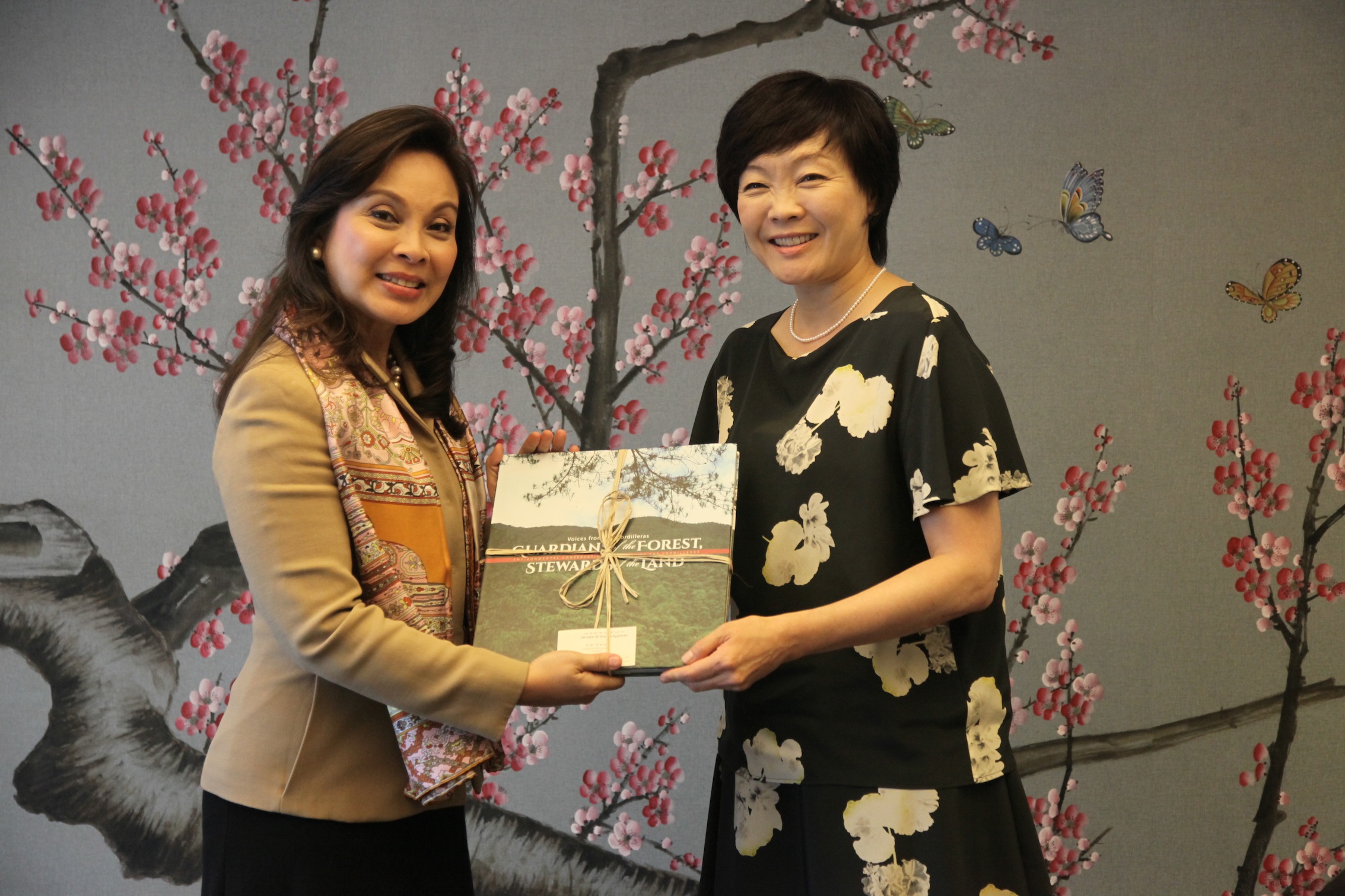Legarda and Japan First Lady Abe Discuss Cooperation on Rice and Disaster Resilience
November 19, 2015Rice and resilience to disasters were the highlights of the meeting today (November 19) between Senator Loren Legarda and Japan’s First Lady Akie Abe, who is in the country with Japanese Prime Minister Shinzo Abe for the 2015 Asia-Pacific Economic Cooperation (APEC) Economic Leaders’ Meeting.
“First Lady Abe and I agreed that there should be exchange of knowledge between the Philippines and Japan in terms of organic farming and how our respective countries can engage the youth to preserve sustainable farming practices and launch programs that will inspire this generation to return to the soil. Rice is a staple food in both Japan and the Philippines and we can have bilateral relations on how we can improve rice production and address the challenges, like continuity and sustainability,” said Legarda.
Legarda, Chairperson of the Senate Committee on Climate Change, recalled that at the 2014 World Assembly for Women in Japan, where she was invited by Prime Minister Abe as the lone Filipino participant, different kinds of rice were served during lunch.
For her part, Mrs. Abe, who is a rice farmer herself, said that she was reminded of how important rice is for the Philippines during the APEC Leaders Welcome Reception, where the leaders’ table featured the rice terraces.
“Mrs. Abe said that rice terraces can also be found in many areas of Japan but rice farmers have few successors as the younger generations are reluctant to tend to the farms. Here in our country, we are trying to preserve the Ifugao Rice Terraces through indigenous systems of Ifugao rice farming,” said Legarda.
The importance of rice for the two nations was evident even in the exchange of gifts between Legarda and Mrs. Abe. The Japanese First Lady gave Legarda organic Japanese rice from her farm and her own book on rice; while the Senator gave Mrs. Abe a copy of the coffee table book she produced with the state universities and colleges of the Cordillera region titled “Guardians of the Forest, Stewards of the Land”, which features indigenous farming and forest management practices in the Cordillera Administrative Region (CAR).
Meanwhile, Legarda and Mrs. Abe also discussed cooperation on disaster resilience.
“Japan and the Philippines are both vulnerable to natural hazards such as typhoons and earthquakes. But the Philippines can learn much from the Japanese in preparing for disasters,” Legarda said.
The Senator recalled that during the 3rd UN World Conference on Disaster Risk Reduction (WCDRR) held in Sendai, Japan last March, Prime Minister Abe himself listened intently to the discussions at a high-level dialogue panel that was co-chaired by Legarda.
“Mrs. Abe explained that PM Abe was greatly interested in the WCDRR and the dialogue among countries because Japan is also prone to natural hazards. The Philippines can learn a lot from Japan, especially from a leader who continues to build the resilience of his country from disasters. The Philippines has been gradually learning to adapt and we need the support and expertise of other nations like Japan in strengthening our disaster and climate resilience programs,” Legarda concluded.


